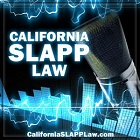Never Forget that the Plaintiff’s Declaration is Taken as True

Evidence on anti-SLAPP motions.
I see too many cases where attorneys have properly identified that the allegations of a particular complaint fall under the anti-SLAPP statute, but then fail to complete the analysis. An anti-SLAPP motion is only viable if the second element favors the defendant. For a successful anti-SLAPP motion, if must be the case that the plaintiff will not be able to show that he is likely to prevail, and that determination is made base on the plaintiff’s evidence, which is taken as true.
For the second step of the anti-SLAPP analysis, it must always be remembered that the court is not permitted to weigh the evidence; indeed, the evidence offered by the plaintiff is taken as true, even if defendant offers contrary evidence.
I get shocked silence followed by howls of protest when I explain this to potential clients. How is it possible that the plaintiff’s evidence should be taken as true, to the exclusion of all the great evidence that defendant can offer?
Why is the Plaintiff’s declaration taken as true?
In reality, this standard applies to most dispositive motions. A plaintiff has the right to have his case decided on the facts by a judge or jury. That right can only be circumvented if the matter at hand can be decided as a matter of law. The moment the court must weigh evidence, a trial is necessary. So, a demurrer, motion for judgment on the pleadings, anti-SLAPP motion, and motion for summary judgment are all decided by taking the evidence offered by plaintiff as true. Only when the evidence is taken as true, but still fails to support an action, can the court then dismiss the case.
The recent case of Wilson v. Cable News Network, Inc. serves to illustrate the evidentiary standard for an anti-SLAPP motion.
Wilson worked as a producer for CNN from 1996 to 2014, when he was fired. CNN claimed that his termination was for plagiarism. CNN claimed that plagiarism was identified in an article Wilson had prepared, leading to an internal audit that revealed five more instances of plagiarism.
Wilson, who is a minority, claimed that the termination for plagiarism was pretextual, with discrimination being the real reason for his termination. He sued for wrongful termination.
CNN responded with an anti-SLAPP motion, arguing that deciding who to employ to create content for CNN implicated First Amendment rights. The trial court agreed that Wilson’s complaint was a SLAPP, and Wilson appealed.
In a 2 to 1 decision, the Court of Appeal ruled that the dispute failed to even satisfy the first prong of the anti-SLAPP analysis. “This is a private employment discrimination and retaliation case, not an action designed to prevent defendants from exercising their First Amendment rights.” This was yet another example of a Court of Appeal not understanding anti-SLAPP law. It is fundamental anti-SLAPP law that the name given to the cause of action does not determine whether it falls under anti-SLAPP protections. The Court of Appeal basically held that since this was a private employment discrimination claim, it could not be a SLAPP. But the two are not mutually exclusive. It would appear to me that deciding who writes for your news organization would clearly have First Amendment implications sufficient to satisfy the first prong. CNN agreed, and decided to take the issue up to the California Supreme Court.
The Supreme Court reversed the Court of Appeal, concluding, as I did, that the matter satisfied the first prong of the analysis. As it reasoned, CNN claimed that it had fired Wilson for plagiarism, which would be a completely necessary step to preserve CNN’s reputation and credibility.
But that was not the end of the analysis. The Supreme Court sent the matter back to the Court of Appeal, to determine if Wilson could satisfy the second prong – whether he could show that he had a probability of prevailing.
For that purpose, all the evidence offered by CNN became moot. The burden was on Wilson to show with his evidence that he could prevail. To that end, Wilson simply provided a declaration stating that one of the people involved in the termination decision had previously shown hostility toward him, and that other CNN writers who had engaged in similar conduct had not been terminated. That was enough to show a chance of prevailment, and the Court of Appeal sent the case back to the trial court for trial. CNN filed declarations to show that the termination was based entirely on the alleged plagiarism, but considering whether that evidence trumped Wilson’s would have necessarily entailed a weighing process, which is prohibited.
In this case, I don’t fault the attorneys for pursuing an anti-SLAPP motion, given the vagaries of anti-SLAPP law. Since an anti-SLAPP motion occurs before discovery, sometimes you can’t know what evidence the plaintiff will be able to offer. Here, the reason for termination was so strong that CNN may have simply believed there was no evidence Wilson could offer to satisfy the second prong.
The error occurs when the issue is a binary one. If a party is sued for defamation, because he wrote a review stating his doctor committed malpractice, a successful anti-SLAPP will likely not be possible. The patient can submit a declaration listing everything he deems to have been below the standard of care, but the doctor will submit a declaration stating he committed no malpractice, and that declaration must be taken as true.



